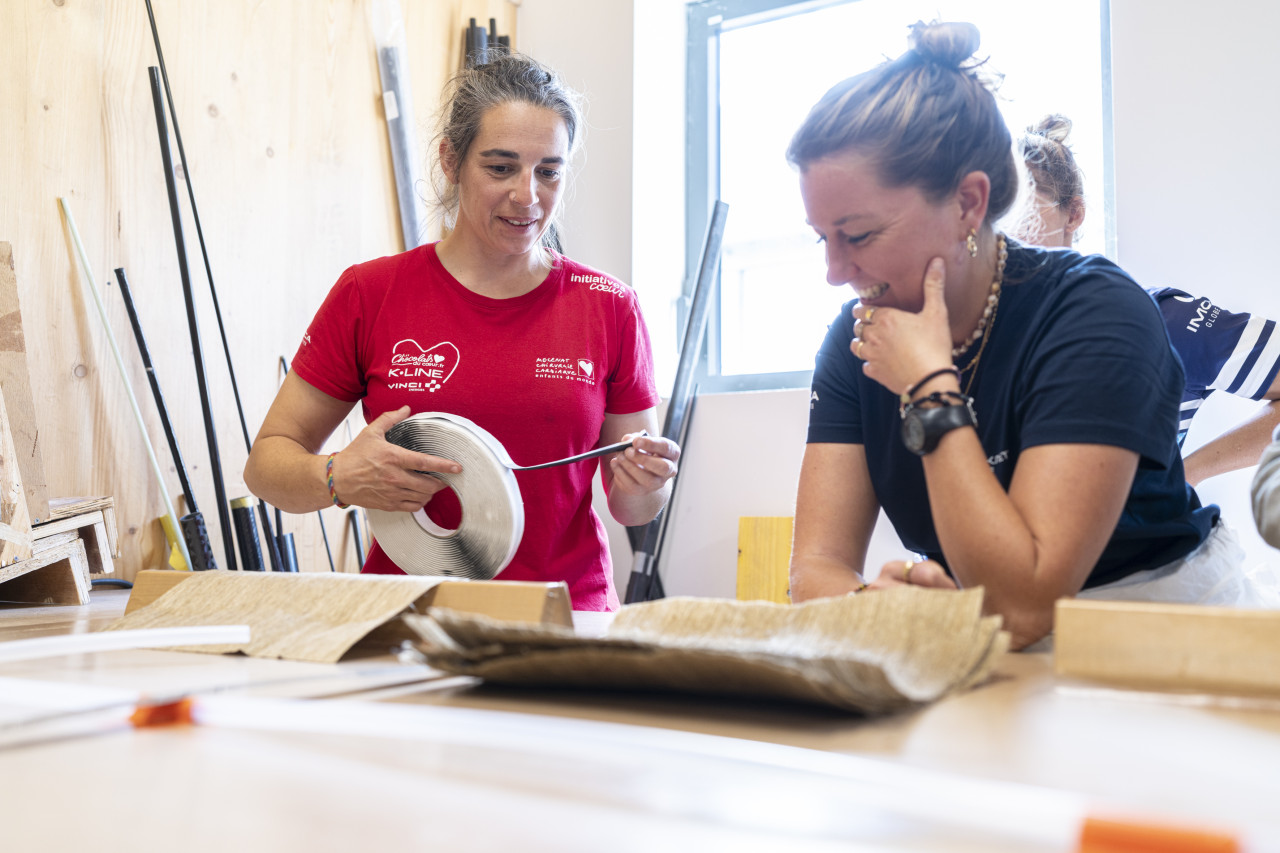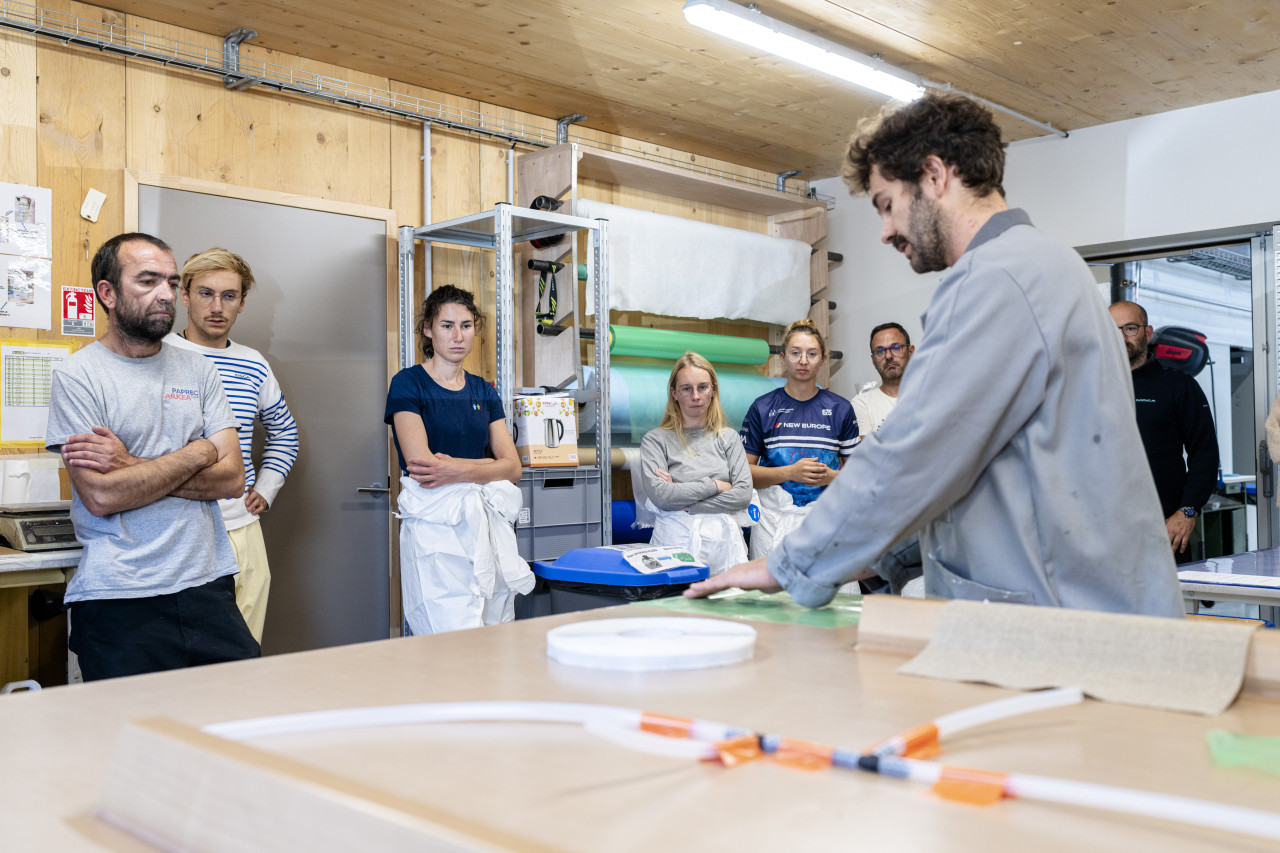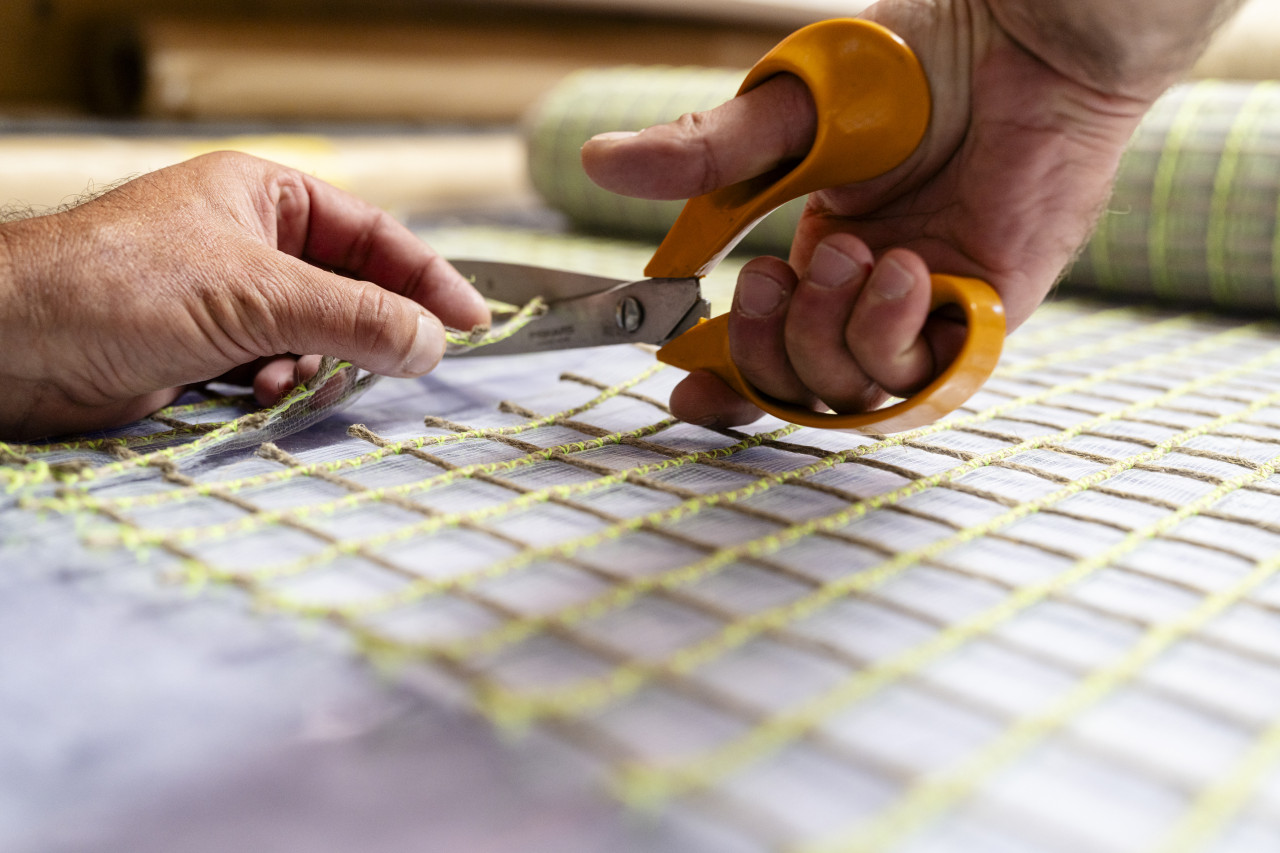Offshore racing: a laboratory for innovation in alternative materials
As part of its commitment to sustainability, the IMOCA class has recently introduced an experimental rule regarding the use of alternative materials in boat construction.
This initiative aims to reduce the environmental impact of teams by allowing them to use less polluting materials such as flax fibers, recycled carbon, basalt, bio-based resins, and natural core materials like cork or balsa. These alternatives replace traditional composites like carbon fiber, epoxy, or fiberglass, which are commonly used in the industry.
The goal of this rule is to lower CO2 emissions associated with the construction of certain detachable parts of the boats. Over the past few years, teams have experimented with these new materials on elements such as chart tables, electronic supports, and hatches. However, challenges and uncertainties still remain regarding their large-scale use.
 © Eloi Stichelbaut - polaRYSE / IMOCA
© Eloi Stichelbaut - polaRYSE / IMOCA
To support teams in this transition, IMOCA, with the backing of 11th Hour Racing, organized a specialized training session in partnership with the technical research team on composites at INNOZH. This practical workshop, held over two half-days, allowed participants to create parts using flax fibers (provided by BComp and EcoTechnilin), recycled carbon (supplied by Gen2Carbon), and bio-based resins.
“The alternative materials workshop, organized by the IMOCA Class and led by Innozh composites, took place at TRR’s facilities. It was an opportunity to test their application through the fabrication of simple parts and support practical observations with a theoretical component,”explained Delphin Pantaloni, Eco-Design Officer at Innozh. “It was a very enriching time of exchange, allowing everyone to share their experiences with these materials, dispel misunderstandings and misconceptions, and discuss the advantages and limitations of using these materials.”
He added, “The sports industry is a sector where the constant pursuit of performance drives innovation, particularly in materials. The growing awareness of environmental impact is motivating the industry to question the balance between performance and the sustainability of sporting goods. A balance that alternative materials can partly address. Thus, sport is a driving sector for the innovation, experimentation, and integration of alternative materials.”
 © Eloi Stichelbaut - polaRYSE / IMOCA
© Eloi Stichelbaut - polaRYSE / IMOCA
Marine Rialan, another participant in the workshop, shared her own experience: “I had the opportunity to attend the alternative materials workshop organized by the IMOCA Class. The workshop was very well structured, with a practical section where we produced several composite parts using alternative materials (flax and recycled carbon) and an analytical section with material descriptions and discussions on the concrete results. This format brought together people with varying skill levels to work on a common topic. It was a great opportunity to exchange technical insights with other teams.”
 © Eloi Stichelbaut - polaRYSE / IMOCA
© Eloi Stichelbaut - polaRYSE / IMOCA
Although the widespread use of these solutions still requires further research and adjustments, this kind of workshop represents a key step in implementing more environmentally friendly materials. IMOCA, in partnership with its technical teams and supporters, hopes to continue innovating in this direction to shape a more sustainable future for competitive sailing.
Teams info
After a stunning 2025 season Sam Goodchild is the IMOCA Globe Series Champion for the second time
After a long season at the top of the IMOCA fleet that featured three race wins, Great Britain’s Sam Goodchild is for the second time in three years the IMOCA Globe Series Champion.
•••Quel rôle peut jouer la course au large dans la transformation du transport international ? Avec Pie…
Pour ce 10ᵉ épisode de Transitions, enregistré au Havre lors du départ de la Transat Café L'Or, nous recevons Jeremy Pochman, PDG de 11th Hour Racing, et Pierre-Antoine Morvan, responsable du pôle course au large et supe…
•••